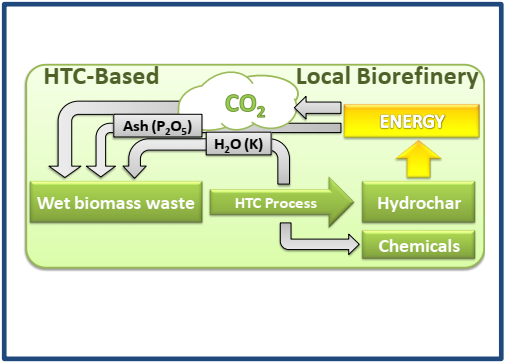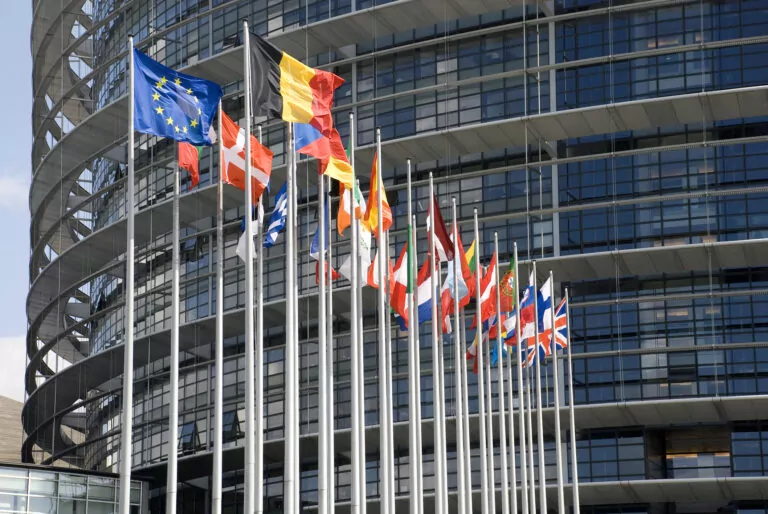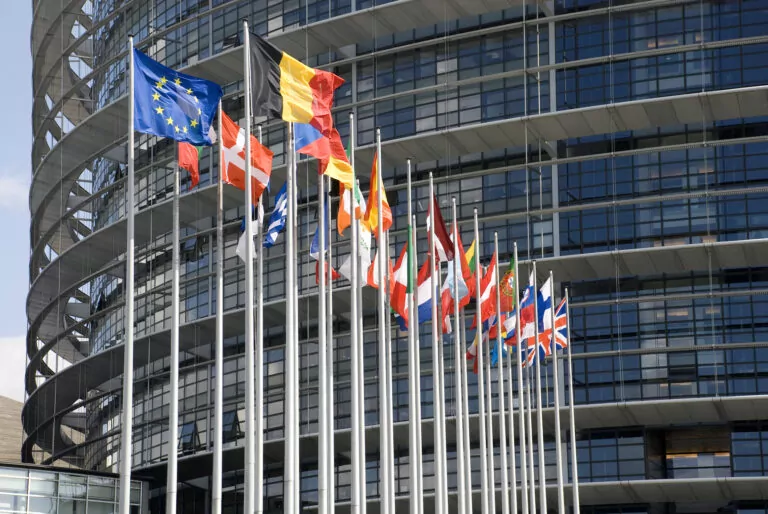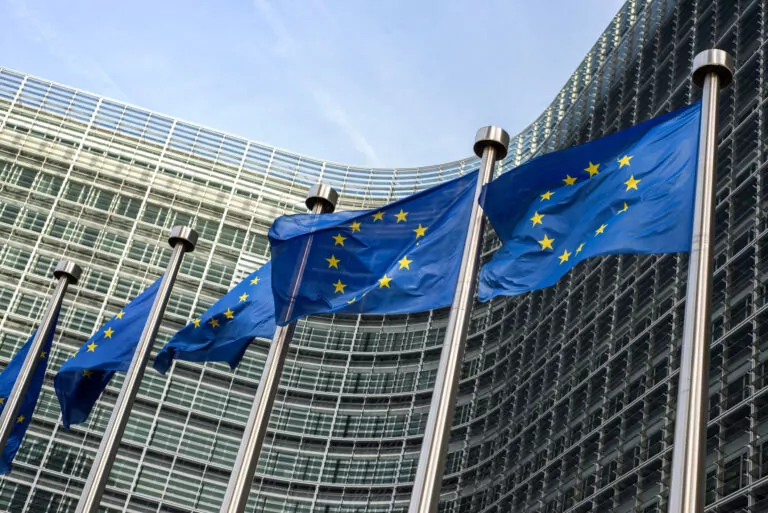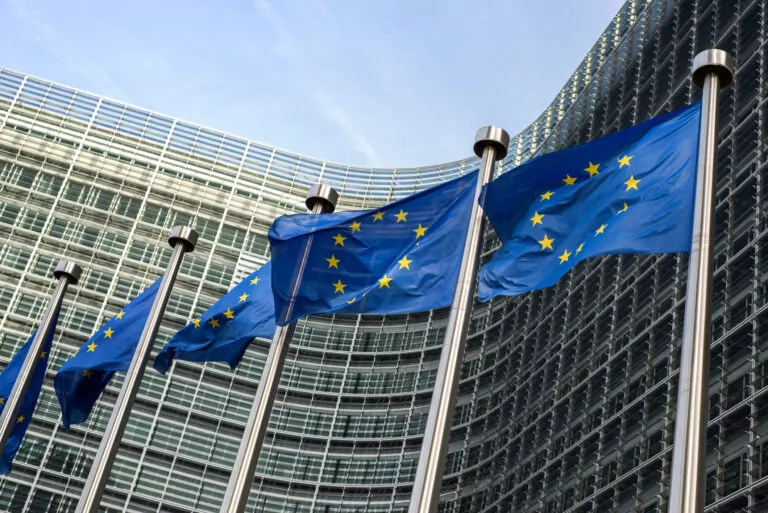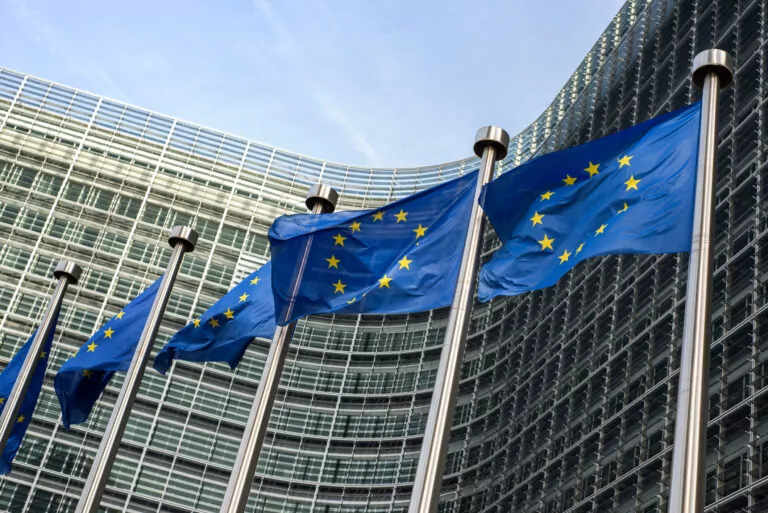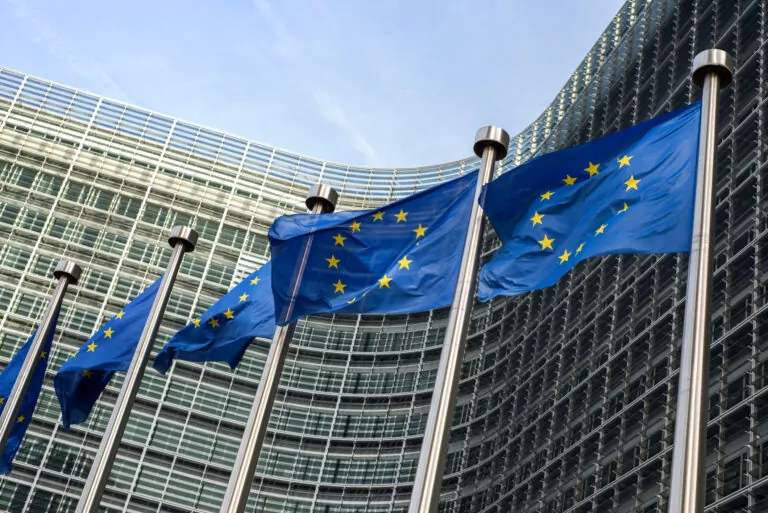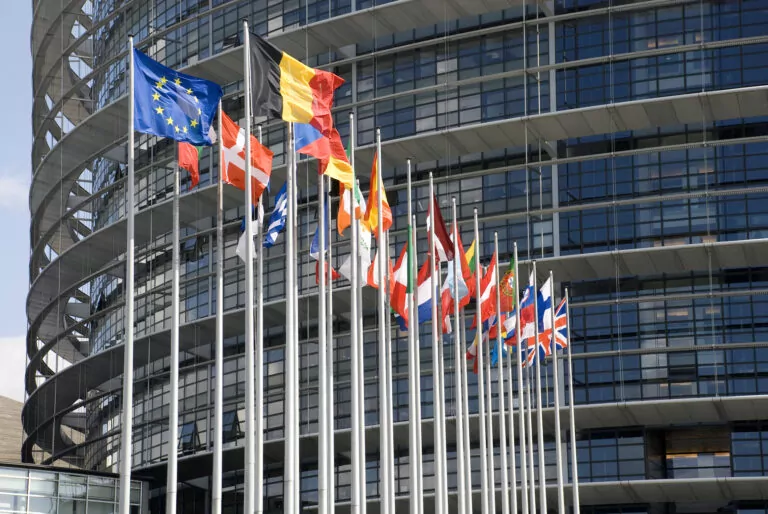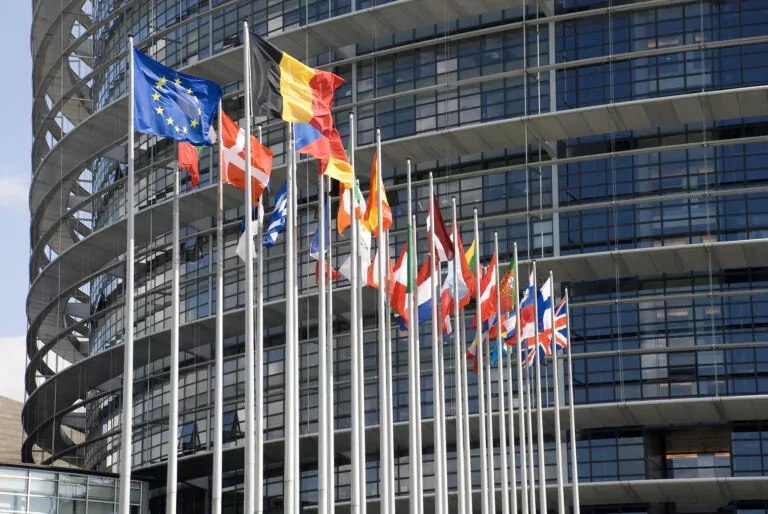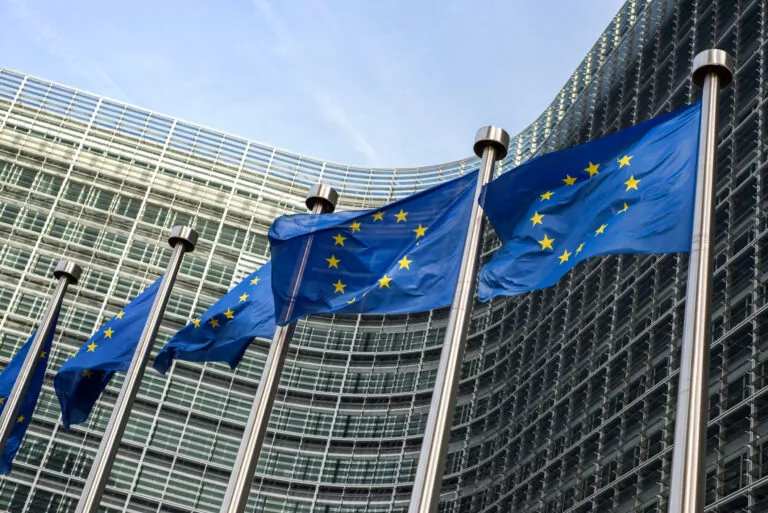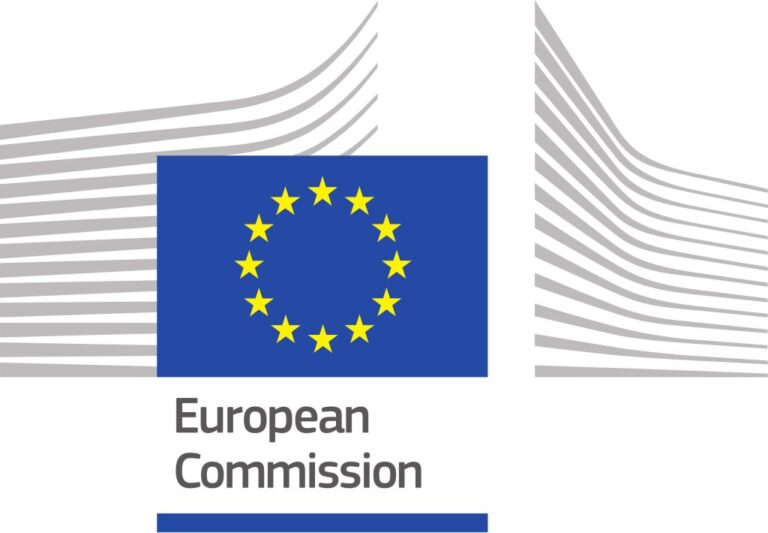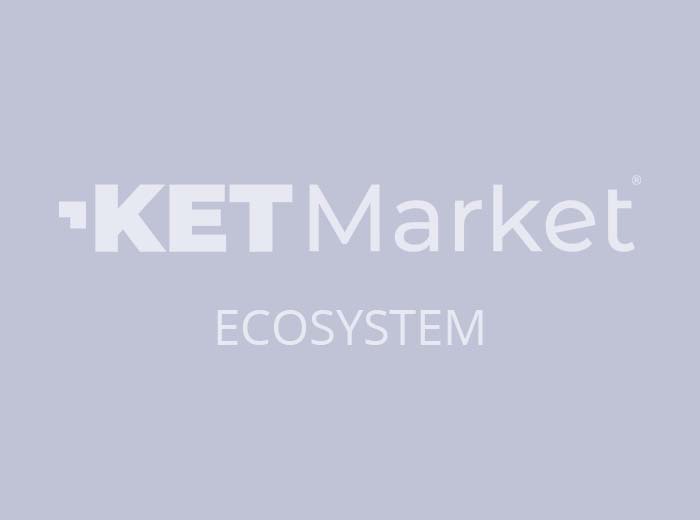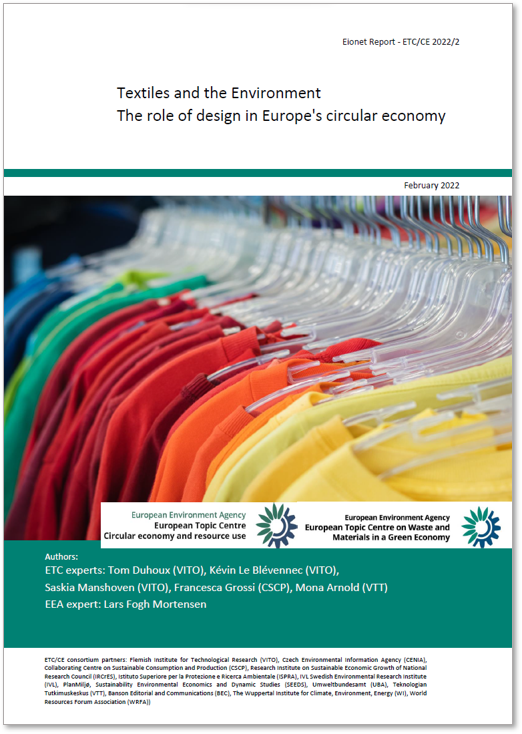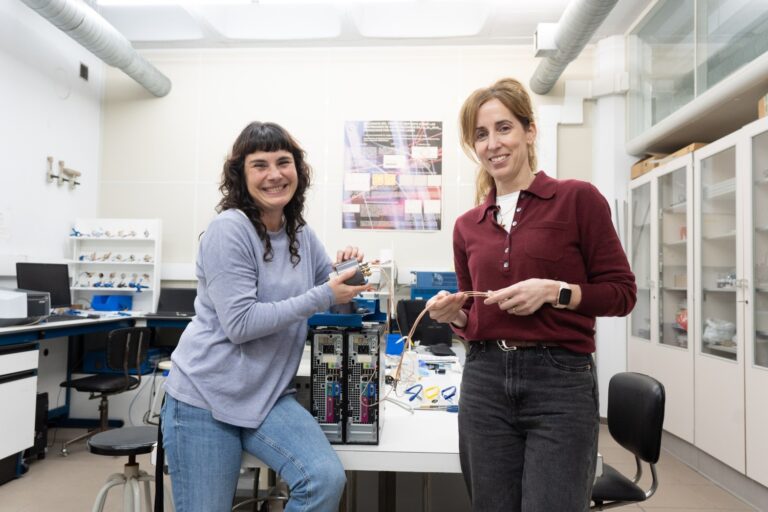Result description
Project has demostrated that HTC (HydroThermal Carbonization) is a industrial-scale sustainable technology, able to upgrade a wide range of organic residues into a high value carbonaceous product, Hydrochar, ready for the commercial take off .
The low emission, the wide range of potential industrial applications and the scalability of the technology presents several potential applications in industry sector, from metallurgy to biofertilizers, energy, chemical sector and others.
Project has explored the different products that can be obtained from the HTC process and developed quality and safety standards and techniques for the resulting products: fuel, activated carbons for water treatment, soil remediation or carbon sequestration are some of the possible resulting products. Hydrochar has been analysed in order to identify its potential direct market applications, as well as its utilisation as a renewable carbon base source.
Hydrothermal Carbonisation (HTC) process industrially developed by Ingelia is a new emerging technology, which has recently demonstrated to be really attractive for agricultural, industrial and municipal waste processing. The resulting product is the Hydrochar, a biomaterial useful as fuel, activated carbons for water treatment, soil remediation or carbon sequestration, bioplastics and so on, with applications in diffrent sectors (energy, metallurgy, chemical, plastics, construction, …).
The existing commercial plant developed by Ingelia demonstrates that HTC is viable and competitive in different conditions and can process all types of organic wastes without significant process changes. As for every other waste valorisation technology, the hydrothermal carbonisation competitiveness should be secured by the waste treatment fees. However, the produced hydrochar demonstrated to have a large range of potential applications as carbon source in several industry sectors.
Addressing target audiences and expressing needs
- To raise awareness and possibly influence policy
- Business partners – SMEs, Entrepreneurs, Large Corporations
- Expanding to more markets /finding new customers
Policy makers should know about a solution that contributes to reducing of carbon dioxide emission from organic waste converting in bio-products, which could contribute to more independence from fossil energy and energy imports and reducing waste landfilling. Hydrochar possibilities does not just can be used as fuel, but also as other biomaterials that can be used in production processes in different sectors as metallurgy, biofertilizers, bioplastics, chemical sector.
Including HTC as a process in the End of Waste legislations would push this really valuable technology.
- EU and Member State Policy-makers
- Other Actors who can help us fulfil our market potential
- Private Investors
R&D, Technology and Innovation aspects
Ingelia is already commercializing industrial HTC plants along Europe and is developing new R&D related to biomaterials to be produced from hydrochar.
As Ingelia´s design is modular, the HTC plants are scaled up by increasing the number of reactors, adapting them to the quantity of available feedstock, reducing the transport of residues and greenhouse gases emissions. Operation hours are also ensured due to the fact that if one line would fail, the plant will be operating with the other lines.
Ingelia’s HTC Plants are able to valorize all types of organic matter without emissions and regardless of the feedstock moisture and heterogeneity. Ingelia´s sustainable process can be adapted to the quantity of available raw material with a minimum plant size of 0.7 tons/hour. The biomaterial produced is homogeneous, useful for different sectors (energy, metallurgy, plastics, chemicals, ….) as fuel, activated carbons for water treatment, soil remediation or carbon sequestration, bioplastics, …
Ingelia´s HTC plants contribute to circular economy by putting organic residues in the bioeconomy again, enabling reduction of waste and greenhouse gases emissions. Organic wastes are actually, in most cases, landfilled as their treatment represents a high cost, while Ingelia´s HTC plants allows to transform them into hydrochar, a biomaterial that can be used as fuel, activated carbons for water treatment, soil remediation or carbon sequestration, bioplastics, … Furthermore, The process is self-sufficient in water and very low electricity consumer
HTC plants are located close to waste streams are generated, creating local jobs and attracting capital for green investments to local economies.
- Asia
- North America
- Europe
Result submitted to Horizon Results Platform by AGENCIA ESTATAL CONSEJO SUPERIOR DE INVESTIGACIONES CIENTIFICAS

